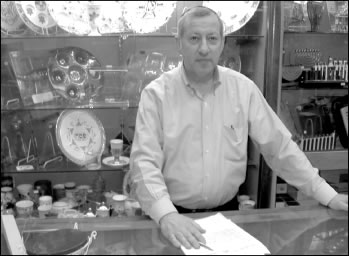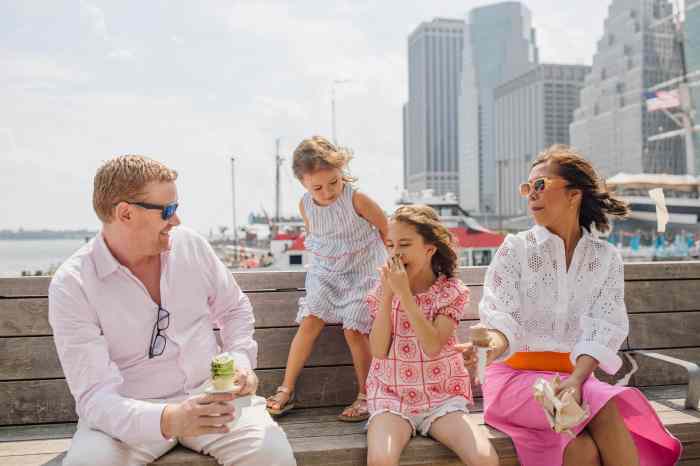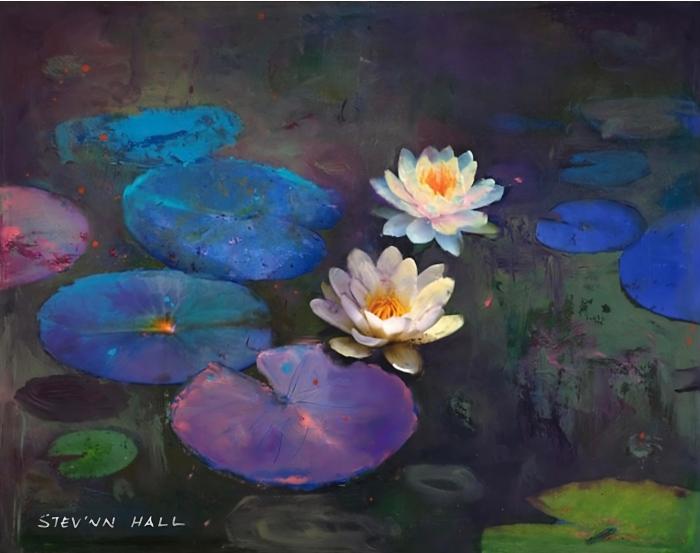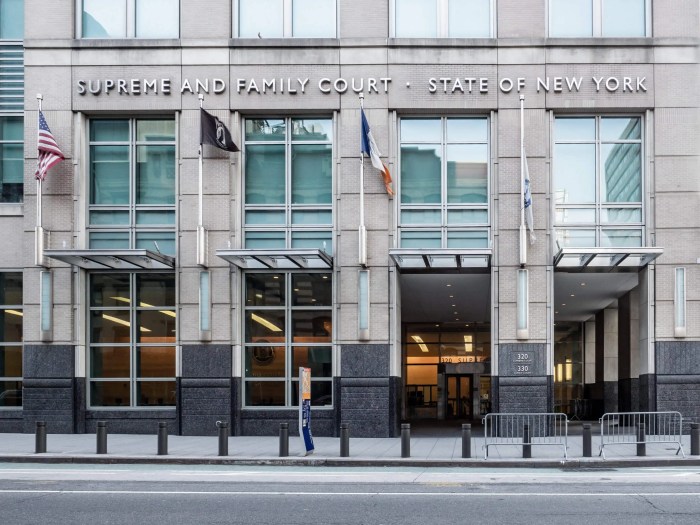By Lesley Sussman
Yakov Melmed’s memory turns back to a time in college when he first came to work for his father at the Ben Ari Arts Jewish religious articles store, 11 Avenue A, which this month is celebrating 50 years at its East Village location.
“The neighborhood was infested with drugs and gangs,” Melmed, current owner of the Judaica store, recalled. “Many shops were empty and the owners had a hard time renting them out. That’s why my great uncle opened here, because the rent was cheap.”
But the history of Ben Ari Arts actually goes back more than 50 years, Melmed said. The business was first opened in 1945 at 201 Allen St. by Mark Lebovic, a young Hungarian immigrant fresh out of the Army, who later relocated it to Grand St., before finally settling in on Avenue A.
Even in the Army during World War II, Lebovics, who first arrived in the U.S. in 1920, already demonstrated his entrepreneurial skills. While in the service, he designed a leg brace for soldiers hurt in action so that they wouldn’t injure themselves any further until medical help arrived.
Those skills were further put to work after the war, when Lebovic opened his Ben Ari Arts Israel-American art gallery.
“The store focused on art because he, himself, was an artist,” Melmed said. “Several years later — in 1950 — my uncle started selling religious articles as well.
“He began to design mezuzot [small religious scrolls placed on door posts], memorial lamps, Sabbath plates, Passover plates and menorahs. Then he had someone do the manufacturing and sold them to businesses across the country.”
After relocating to Avenue A in 1960, Lebovic took on a partner — Melmed’s father, David, who was married to Lebovic’s niece. It was a partnership which was to last for more than 30 years.
Melmed, 57, an observant Jew and Long Island resident who is married and has four children and several grandchildren, said he first got involved with the religious articles and Israeli arts and crafts store in 1973 when his uncle retired and his father needed some help.
“I was at Queens College majoring in economics,” he recalled. “I decided to work part time here and finish school. Then I joined him full time in 1975.”
Competition was fierce back then.
“But we attracted a lot of customers because my father had good customer relations,” he said. “People preferred to buy from him than from other people because of his warm and kind nature.”
Today, most of Melmed’s business is — as it has been over the years — primarily wholesale and mail order. It seems almost a shame that there is so little foot traffic, because to enter this large-sized store is like entering a magical wonderland, with its glittering array of menorahs, ceremonial wine cups, Seder plates for Rosh Hashanah, prayer shawls, jewelry, silver candlesticks and mezuzahs, among many other items imported from Israel, including beautiful religious art. It is a portal into an extraordinary world of Jewish religious life.
Those few Jewish customers who have ventured in over the years are often surprised at finding such a store in a neighborhood where trendy bars and restaurants reign supreme, Melmed said.
“But I’m always happy when they do,” he said. “People are always welcome here.”
It also seems a bit sad that Ben Ari Arts is one of only two remaining shops of its kind still to be found on the Lower East Side, when there used to be more than 50 such stores selling everything from gift ware to books.
“Most of them were on Essex, Ludlow and Eldridge Sts.,” he said. “But in the late ’70’s Chinatown started to expand and, one by one, these businesses closed. As Jewish communities throughout the country started to grow, these kinds of stores sprouted in those communities, rather than them all being centralized here.”
Melmed, however, doesn’t necessarily view this as a negative.
“Wherever these stores are, they’re thriving,” he noted. “What happened here is just the way all neighborhoods change.
“Right now I don’t have any children who seem interested in the business,” he said. “When I decide to retire in maybe 10 or 15 years, I’d love to sell the business unless someone in my family would be interested in taking over.”
Melmed said he is seeing an increase in business because more and more unaffiliated Jews seem to be returning to their roots.
“People are starting to realize that without religion, life does not have a greater purpose,” he said. “They’re coming back to it and searching for more religion. They want to bring candlesticks into their homes, put a mezuzah on their door. So there’s a growing interest and a greater need for the things I sell.”


















